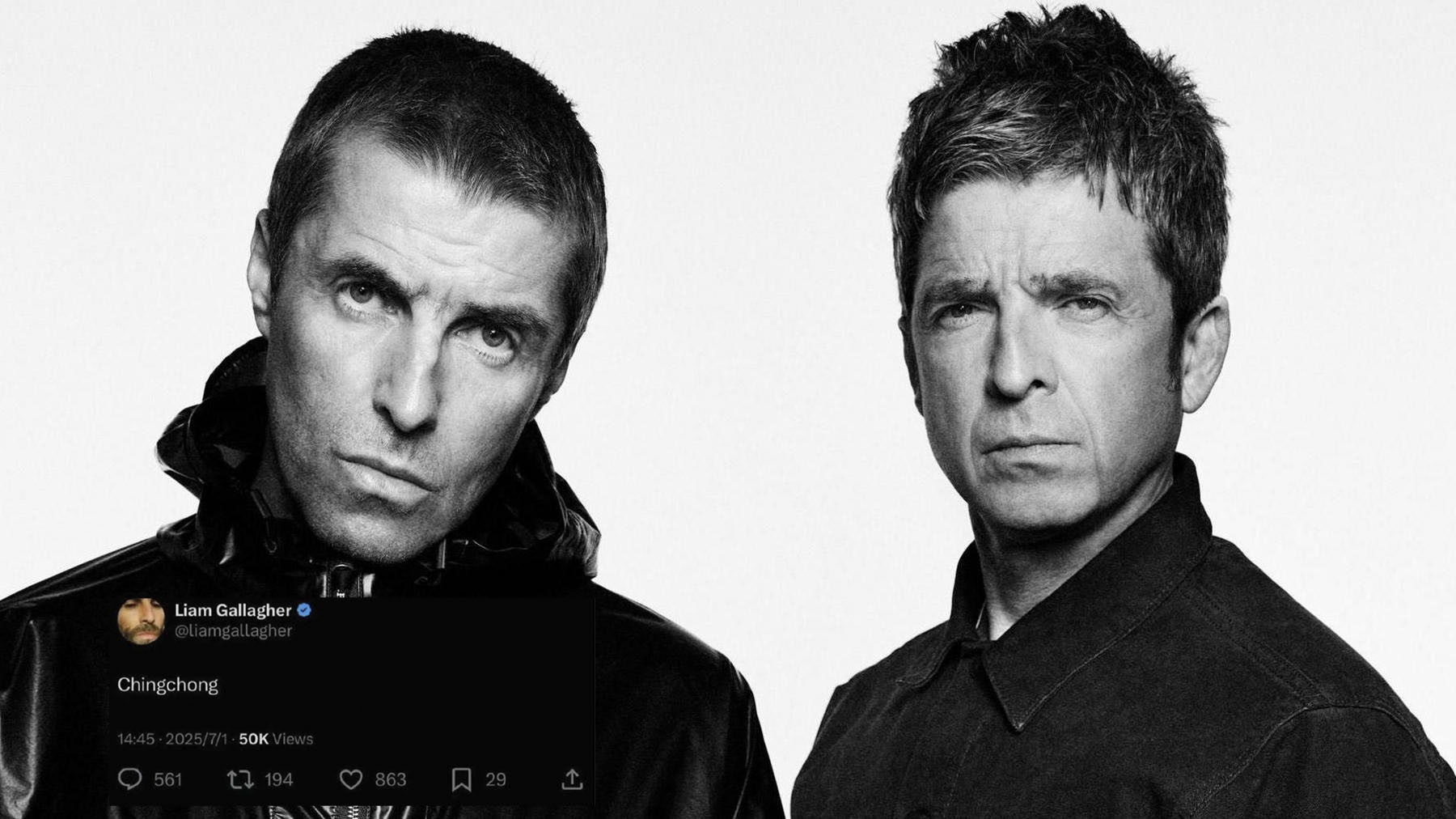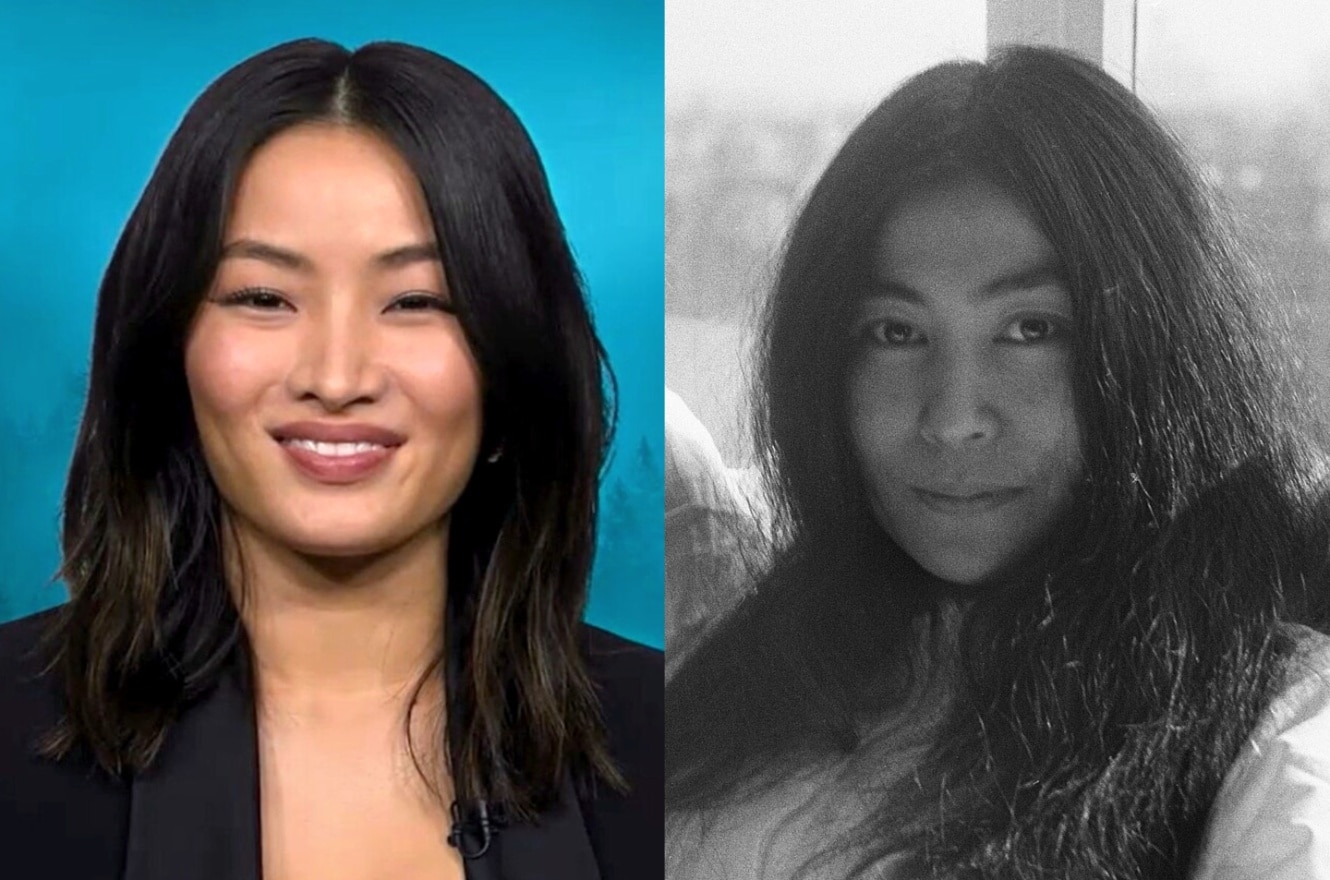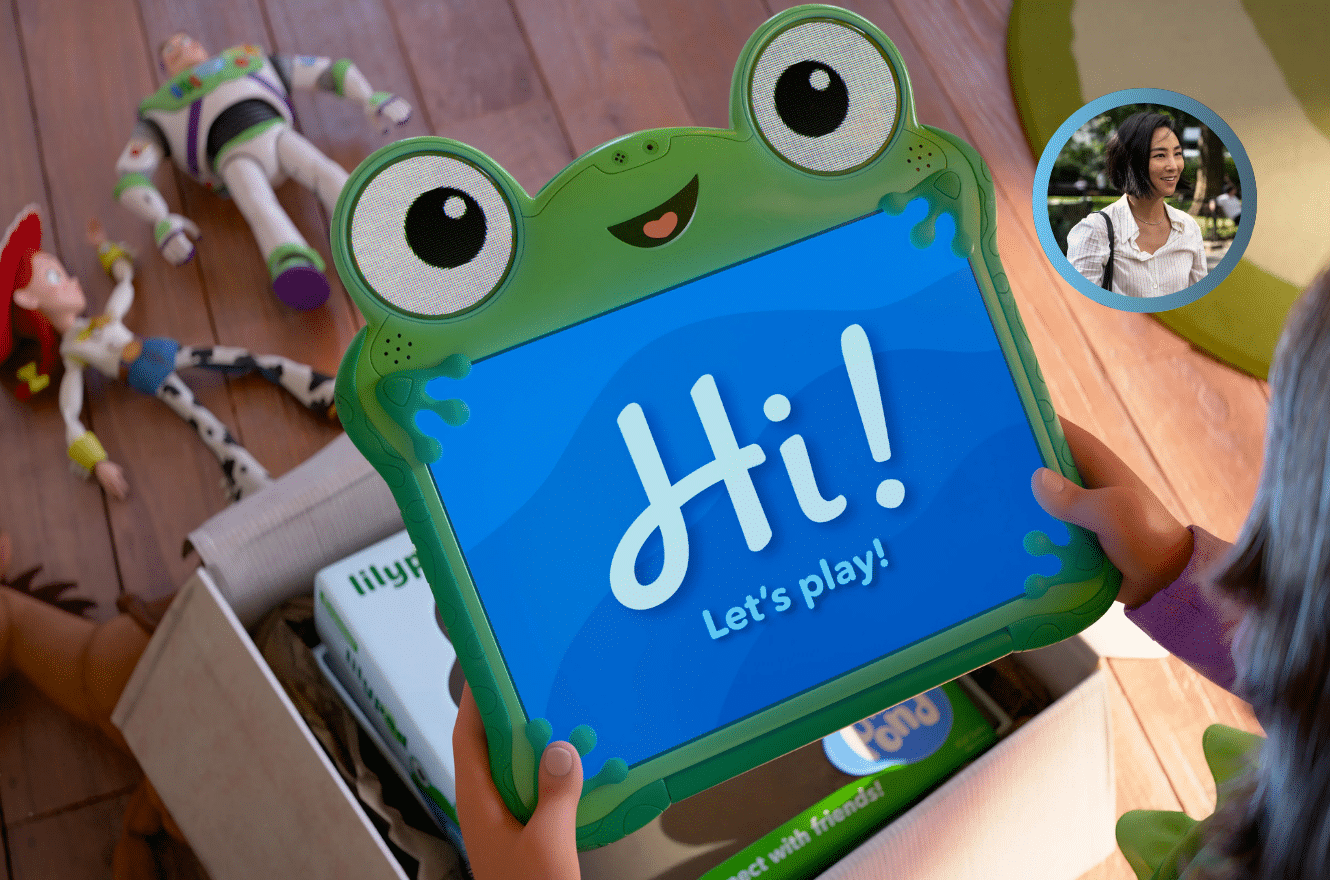Liam Gallagher, the outspoken frontman of the iconic British band Oasis, has been compelled to apologise on social media after appearing to use a racial slur. The incident occurred just as Oasis prepares to embark on their sold-out ‘Live 25’ reunion tour, set to begin on Friday, July 4, in Cardiff. The band, which famously split in 2009, is reuniting for the first time in 15 years for a worldwide tour that includes stops in South Korea and Japan in October.
Screenshots posted on X (formerly Twitter) showed Gallagher tweeting the phrase “chingchong,” a term widely understood as an offensive and derogatory imitation of East Asian languages, often used to mock or denigrate people perceived to be of East Asian descent, including those from South Korea and Japan.
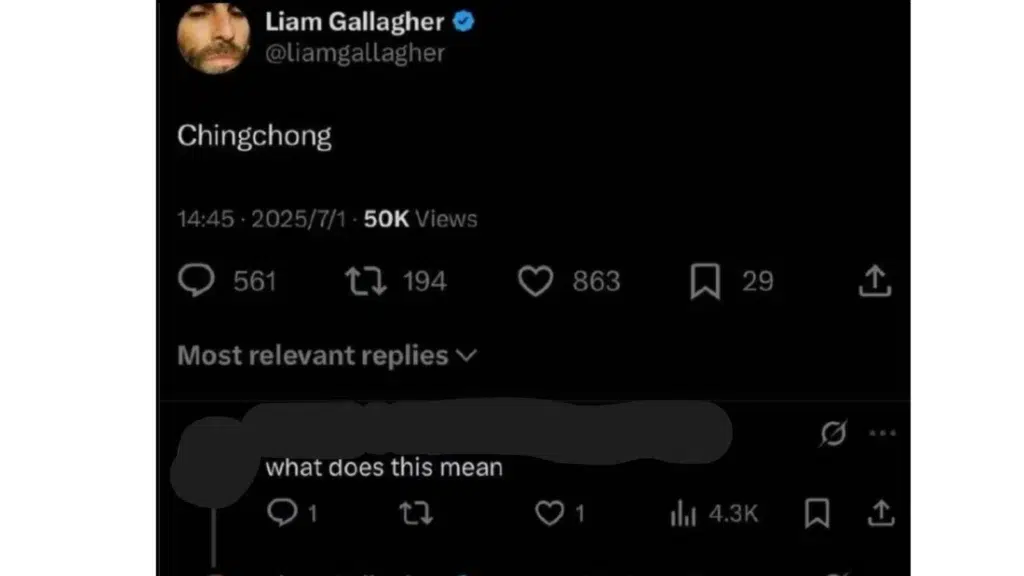
Initial Resistance and Backlash
The controversial post was swiftly deleted, but not before it generated a flurry of critical responses from South Korean fans. When one user, @Hrpss8, tweeted, “Liam, you can’t say that,” Gallagher reportedly replied, “Why?” Another fan, @Icey_Melted, warned him that he might “offend his own fans,” to which the former Beady Eye frontman seemingly joked, “Chill out Birdy.”
Further screenshots indicated Gallagher’s initial defence of the term, reportedly describing ‘chingchong’ as an “ancient thought process” that was “zillions of years old.” When a fan, @LiamPurrs, expressed feeling “aggressive” due to his tweets, a still-readable response from Gallagher read: “You need work on that and don’t be blaming other people for your weaknesses.”
The incident quickly drew strong condemnation from South Korean music fan accounts and other users. @KK10000 tweeted: “When your favorite global singer goes rogue and tweets a racial slur instead of their next hit—yikes!” Critics also highlighted the perceived insincerity of his eventual apology and the uncomfortable timing, given the band’s upcoming performances in Asia.
One X user wrote, “As a Chinese and Asian, your remarks strike me as intentional and discriminatory. You have the opportunity to apologise properly, but instead you deny responsibility for your racist words and choose to ignore the victims of your bigotry. How pitiful.” Another added, “This is not a proper apology and I don’t accept it. No you’re not truly sorry. You just worry about not being able to snatch Asian ppls money. You said BEHAVE to ppl who told you it’s discriminative to say such thing.”
There was also online debate over non-Asian fans defending Gallagher, with some Asian users directly confronting them: “If you’re not Asian don’t you f***ing dare reply saying he didn’t owe anybody an apology or that his intentions were always good. You’re embarrassing yourself. Don’t speak for us,” read one post.
The Apology and Tour Preparations
Hours after the initial backlash, Gallagher deleted the original post and issued a concise apology: “Sorry if I offended anyone with my tweet before, it wasn’t intentional, you know I love you all and I do not discriminate. Peace and love LG x.”
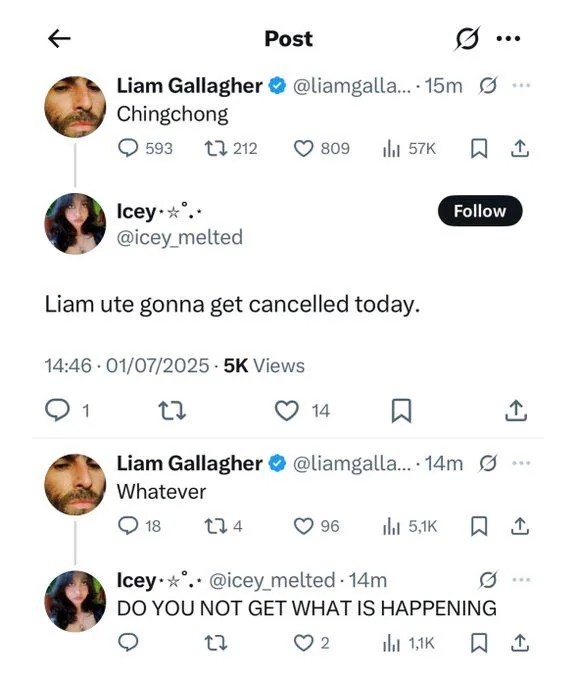
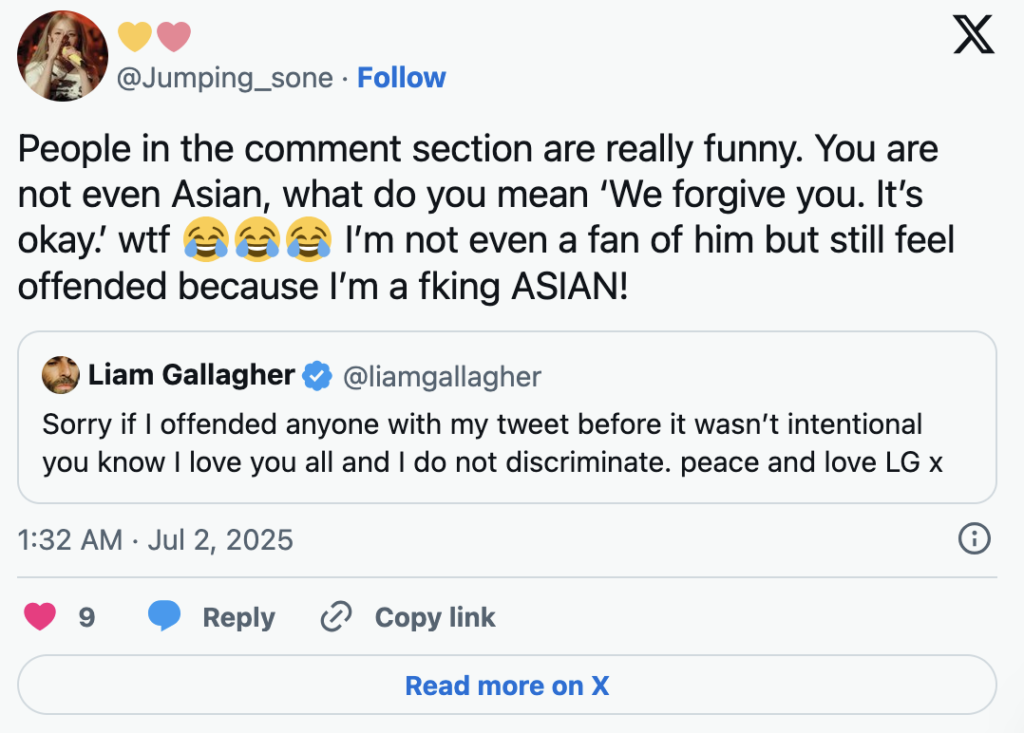
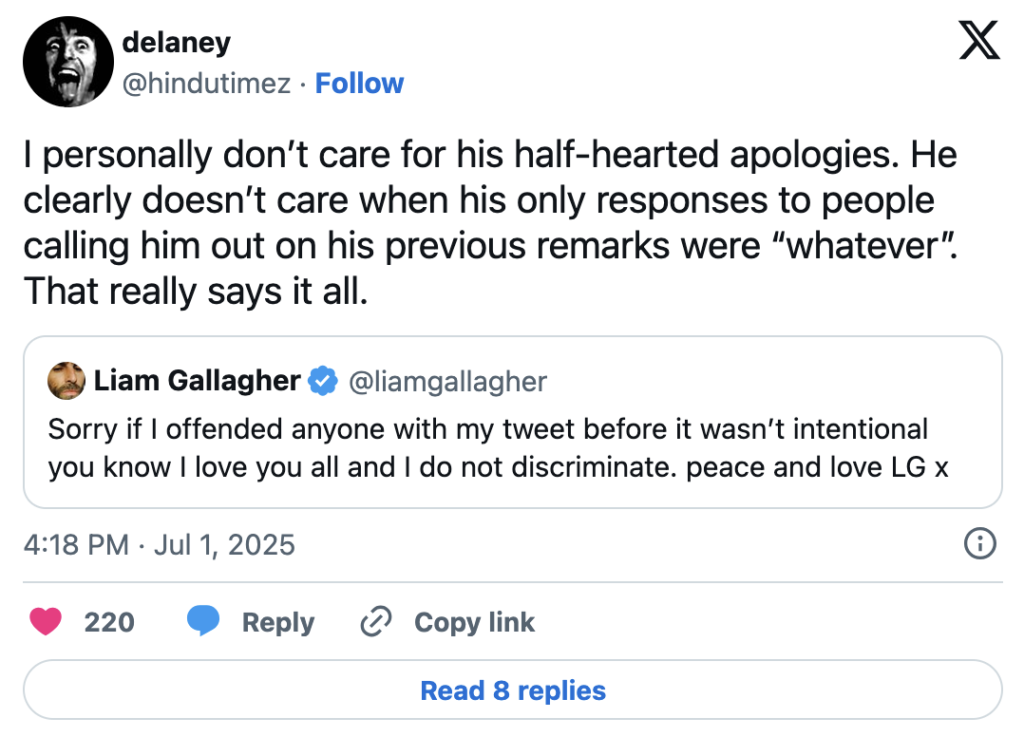
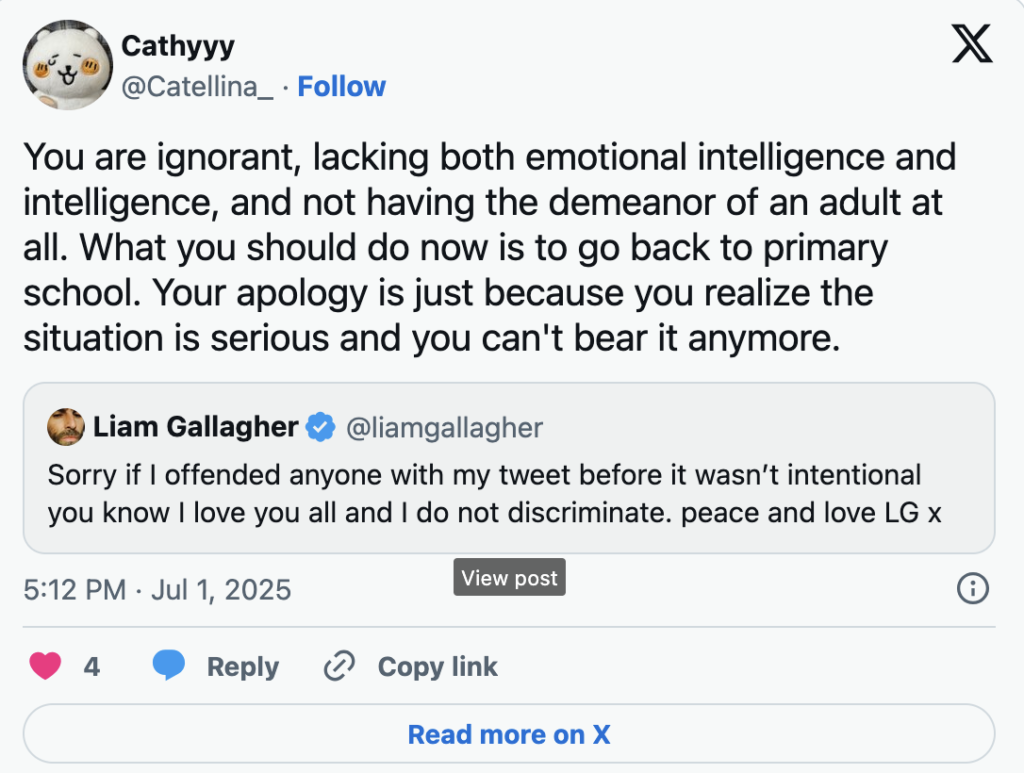
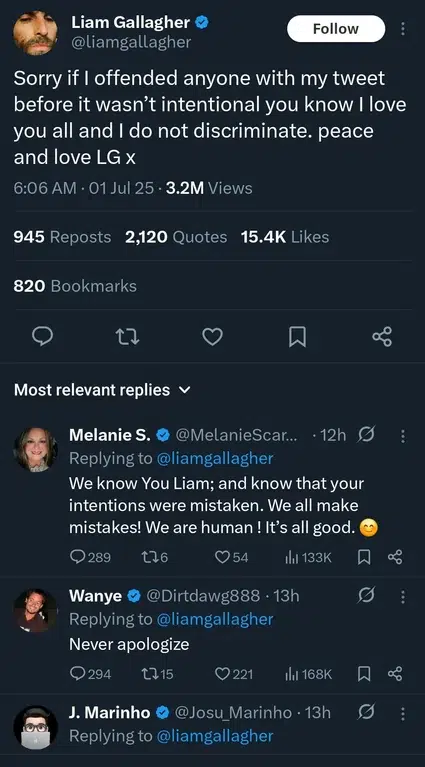
The use of such derogatory terms was notably prevalent during the Covid-19 pandemic, a period that saw a global surge in anti-Asian hate crimes, often fuelled by racist rhetoric and misinformation.
Oasis’ highly anticipated reunion tour is set to kick off at the Principality Stadium in Cardiff, with over 74,000 people expected to attend. The band will also perform in South Korea on October 21 at Goyang Stadium, followed by two shows in Japan on October 25 and 26 at the Tokyo Dome. Soundcheck videos from Cardiff have already circulated, with fans remarking on the band sounding “biblical.”
This incident marks a controversial beginning to what is expected to be a monumental comeback tour for the Gallagher brothers.

